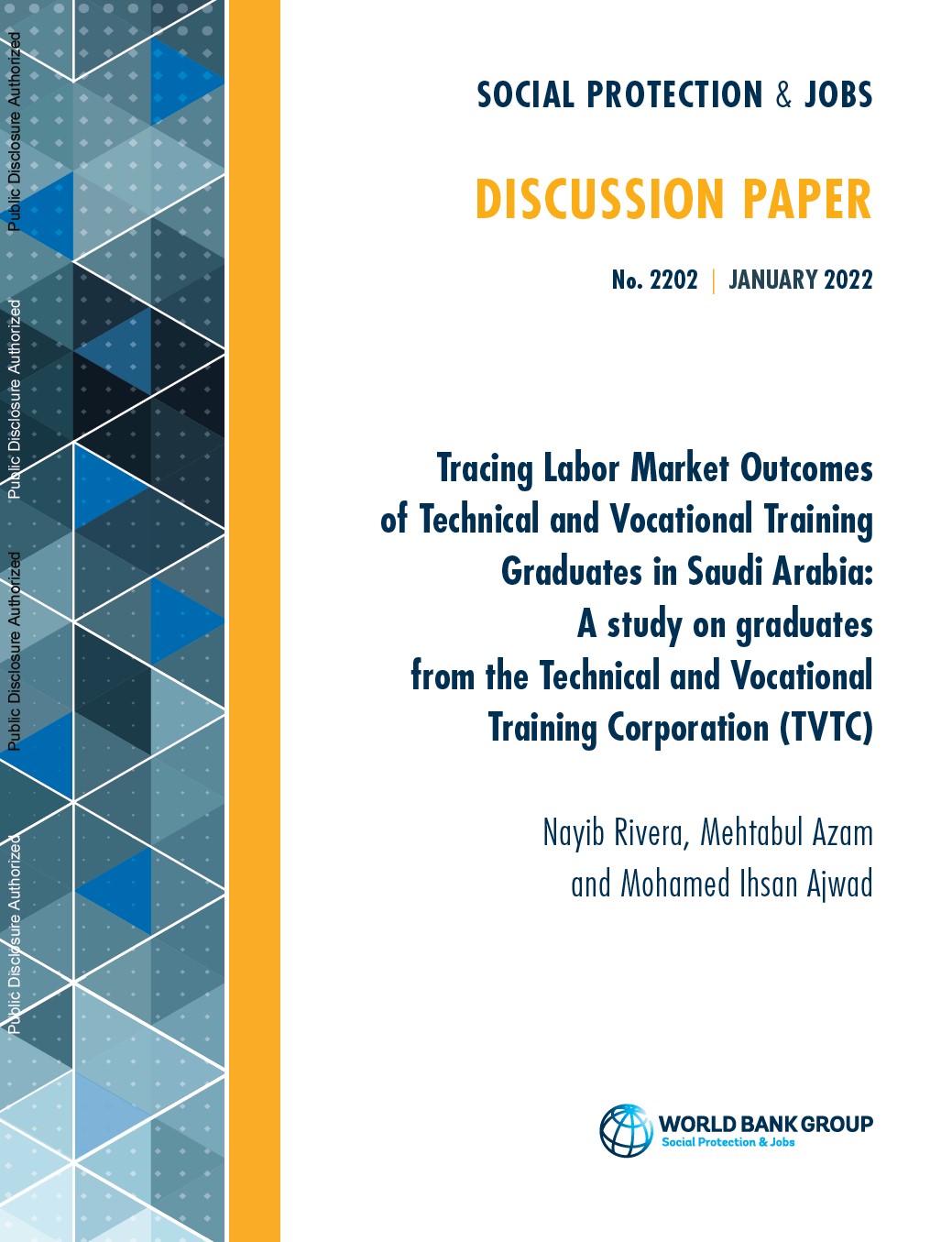
The UNESCO-UNEVOC International Centre: Who We Are | What We Do | Working With Us | Get in Touch
The UNEVOC Network: Learn About the Network | UNEVOC Network Directory
For Members: UNEVOC Centre Dashboard
Thematic Areas: Inclusion and Youth | Digital Transformation | Private Sector Engagement | SDGs and Greening TVET
Our Key Programmes & Projects: BILT: Bridging Innovation and Learning in TVET | Building TVET resilience | TVET Leadership Programme | WYSD: World Youth Skills Day
Past Activities: COVID-19 response | i-hubs project | TVET Global Forums | Virtual Conferences | YEM Knowledge Portal
Our Services & Resources: Publications | TVET Forum | TVET Country Profiles | TVETipedia Glossary | Innovative and Promising Practices | Toolkits for TVET Providers | Entrepreneurial Learning Guide
Events: Major TVET Events | UNEVOC Network News

| Author/s: | Nayib Rivera, Mehtabul Azam and Mohamed Ihsan Ajwad |
| Publisher/s: | The World Bank |
| Published: | 2022 |
| Licence: | Standard copyright - All rights reserved |
This paper exploits a rich dataset from various administrative sources to study short- and medium-term labor market outcomes of vocational education and training graduates in Saudi Arabia. It examines five cohorts of graduates from institutes operated by the Technical and Vocational Training Corporation who are formally employed in the private sector. The outcome measures for the study are based on monthly earnings data from the private sector social insurance records covering up to five years after graduation for the first cohort. The analysis finds positive returns to technical and vocational education are sustained over time. However, program orientation and economic conditions at the time of graduation appears to impact wages.
Furthermore, vocational education and training in Saudi Arabia is associated with higher job mobility after graduation from the program. Students' mobility premium is enhanced by completion of the program, suggesting improved skills signaling and utilization contributing to higher returns to vocational education and training. The analysis identifies several challenges and opportunities to further improve outcomes of graduates, such as reducing the gender gap in labor market outcomes of female graduates and reducing the high incidence of vertical mismatch among graduates' field-of-study selection and the occupations group in which they are employed.